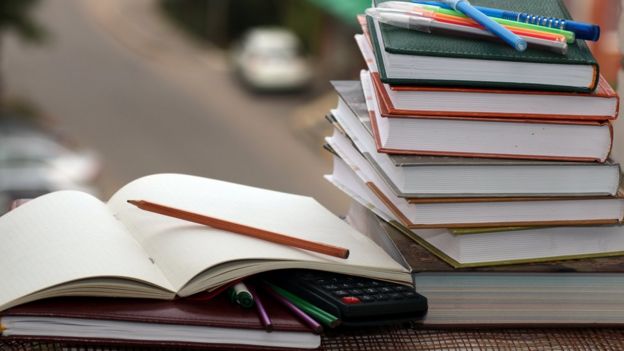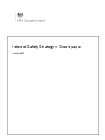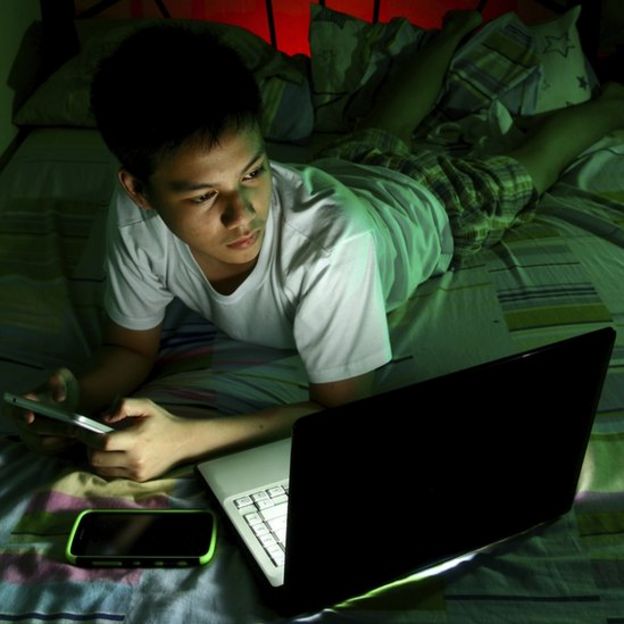Thousands of pupils across England, Northern Ireland and Wales have started their GCSE exams, marking the beginning of what can often be a stressful and anxious time for teenagers and parents alike.
From preparing their favourite dinners, to managing expectations (yours and theirs), experts offer their tips on what parents can do to help in the coming weeks.
1. Brain food

Stress, anxiety and late-night cramming can all affect appetite, but parents can help to ensure children maintain a well-balanced diet and aren't missing meals.
Exams generally start at either 09:00 or 13:30 - allowing plenty of time for breakfast and lunch.
Nutritional therapist Kerry Torrens recommends making breakfast the most important meal of the day, filling up on energy-giving oats and eggs, which contain a nutrient called choline - thought to help cognitive performance and improve memory as we age.
As for revision snacks, consultant Dr Alex Richardson recommends popcorn over crisps as it is higher in fibre, so releases energy more slowly, and is lower in calories.
Make sure your child is well hydrated, as mild dehydration can lead to tiredness, headaches and diminished concentration.
The European Food Safety Authority recommends eight to 10 glasses a day, but sparkling water still counts, and can be made less boring by adding lemon, lime, cucumber or mint.
Research has suggested students who take water into the exam hall may even improve their grades.
2. Bedtime

It won't come as a surprise to parents that teenagers need (and like) a lot of sleep. In fact, they need eight to nine hours a night.
But exam season can see priorities change.
Lisa Artis from the Sleep Council argues a good night's sleep is more beneficial than doing last-minute revision into the early hours.
"When you sleep well, you function and perform better and your memory is better, meaning you retain what you have revised," she said.
For those too nervous to sleep, Lisa says the hour before bed time is crucial.
"Have a good routine before bed. Relaxing properly will help sleep when you're stressed or anxious. Avoid screen time - including television - and get off social media."
Lisa suggests worried students should write down their anxieties, which can "free your mind of them".
"Parents can encourage children to study out of their bedrooms," she added. "If they are sat on their bed cramming, it becomes a place associated with stress."
If another room is not an option, Lisa suggested "zoning" - creating a desk or work area that is not their bed.
3. Support Vs Pressure

Parenting coach Anita Cleare says it's important to "find ways of being supportive without being imposing".
"They know the exams are important. Us ramping up the pressure is not going to help," she said.
While some parents may opt for large rewards, pending results, Anita suggested smaller rewards throughout the process.
"These can be little things like a takeaway or a trip to the cinema after a certain number of hours of revision."
Clinical psychologist Dr Rachel Andrew has been advising a lot of concerned parents in recent months.
"I tell them to look after their teenagers almost as if you would a younger child. You have got to nurture them through this time," she says.
This can be anything from preparing their favourite dinners to offering to run them a bath.
"Give them permission to take a break from revision in between working hard."
Dr Andrew suggests writing a weekly revision timetable, with scheduled gaps for socialising or exercise.
"A moderate level of anxiety will help us perform, but beyond that, we start to be impaired by it."
4. Positive parenting

Anita - who is also founder of the Positive Parenting Project - favours an optimistic approach during exam time.
"A failed exam is not the end of the world. It is important to put things in perspective," she says.
Anita - who has a son completing GCSEs this year - admitted parents are often more anxious than their children.
"We can't make anybody learn, you can only provide the conditions that are conducive to it."
Not all exams go well and telling your child "I'm sure it went better than you thought", isn't always helpful according to Dr Andrew.
She said it is important to validate the way they are feeling and talk through it after an exam, before helping them to move on and focus their energy on the next exam.
"Every child is different and will respond differently to pressure," she adds.











